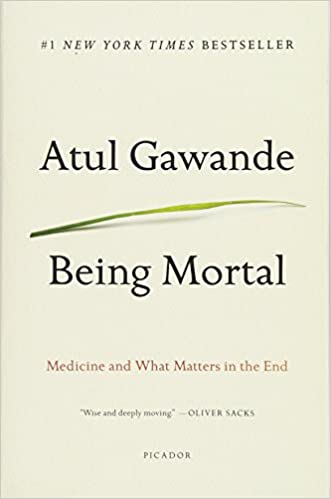It is unrealistic to expect to move through life without regrets because most of us regret something, sooner or later. It is a very common human emotion. There are thousands of novels based around the subject of regret and it is a popular theme in pop or country songs. And although many people claim to have no regrets, the truth is that we all have them.
We can have regrets over anything from a bad haircut to missing a once-in-a-lifetime opportunity. This is perfectly normal and everyone feels this way sometimes. It only becomes a problem when feelings of regret start taking over your life and negatively impacting your happiness and future.

being mortal
by Atul Gawande
⏱ 13 minutes reading time
🎧 Audio version available
If you are struggling with long-term regret, it is important to learn how to forgive yourself and move on.
Understand the meaning of regret.
According to psychologists, regret is wishing you had chosen differently because the consequences of that choice were unfavorable. With hindsight, this feeling often intensifies and leads to sadness, guilt, and disappointment in yourself.
Regret manifests in expressions of “should have, could have, would have” and can be overwhelming if you constantly replay events in your mind. Regret is not the same as remorse. Regret is a feeling that affects you personally, whereas remorse is feeling sorry for your behavior because of the impact it has on others.
Acknowledge your feelings
You can’t block these feelings. However hard you try, they will sneak up on you when you least expect it and overwhelm you. But, while many people constantly replay regrets, in most cases they don’t put in the work of understanding and acknowledging why they feel the way they do.
Saying that “I feel regret” rather than “I feel bad” can help you identify and manage the emotion. Nobody is perfect, and while you may look back and regret what has happened, you can’t change it.
Perhaps you felt you weren’t a good parent, or you stayed in an abusive relationship too long? Maybe you didn’t make the best choices for your retirement planning, moved house, or made some other decision that, with hindsight, you wish you could have made differently?
Accepting that you are not perfect and acknowledging that you do have regrets over certain things, is human. We can’t know the future, so there are no guarantees that the decisions we make today won’t lead to regret later.
Believe in yourself
Regret can affect your decision-making and thinking, and in some cases, it can help us learn from our mistakes, but often it can also negatively impact our future.
For example, if your relationship has failed, you may assume all your relationships are doomed. You may have made one bad financial decision, so now you think that you cannot be trusted to make another.
It is important to remember that even though something didn’t work out this time, next time it might. Try not to let a past mistake or regret cloud your judgment. Too many regrets about the past can lead to decision anxiety in the future.
Productive regret can help you grow as a person.
That said, not all regret is bad. Productive regret is where you look at the situation that has caused you sleepless nights and see how you could have avoided it. Regret can be a learning experience for the future.
You need to identify where you went wrong and take steps to avoid it in the future. So, for example, if your regrets all stem from a pattern of behavior that often repeats itself and sabotages your happiness, it might be helpful to seek counseling and to work on changing your mindset.
Were those missed opportunities really the answer to happiness?
One of the leading causes of regret, according to psychologists, comes from moments when you could have taken an opportunity, but for whatever reason, you didn’t.
Generally speaking, these are moments when you turned down an exciting job offer, an opportunity to travel, to speak out against something to a relation or friend, a relationship, or when you had an opportunity to experience something but decided against it. Once the chance has passed, it is easy to fall into regret about what might have been.
It is important to remember that you have no guarantees that, had you acted, everything would have worked out and your life would have been happier.
Relationships can be a minefield of regret. For example, a woman who regretted not marrying her childhood sweetheart, who her parents warned her against. Years later, by chance, she met the man’s widow and discovered that the man had been an alcoholic and an abuser, and had she married him herself, she would not have had the life of happiness she dreamed they would.
This alternative future is imaginary, so it always works out well in your mind. The truth is that had you acted differently, it could have led to a wildly different scenario of regrets and problems.
Moving on from regret
Living in the past sabotages your future. Your regret over a situation is personal to you and it is very possible that, for everyone else, it is long forgotten. You can’t change the past, but you can view your regret as a learning experience for the future.
Remember that we are all imperfect human beings, and sometimes we do not act or behave perfectly. Learning how to tolerate other people and understand their mistakes, as well as your own, will help you put your own regret into a context where it is more manageable.
What Is Snapreads?

With the Snapreads app, you get the key insights from the best nonfiction books in minutes, not hours or days. Our experts transform these books into quick, memorable, easy-to-understand insights you can read when you have the time or listen to them on the go.



